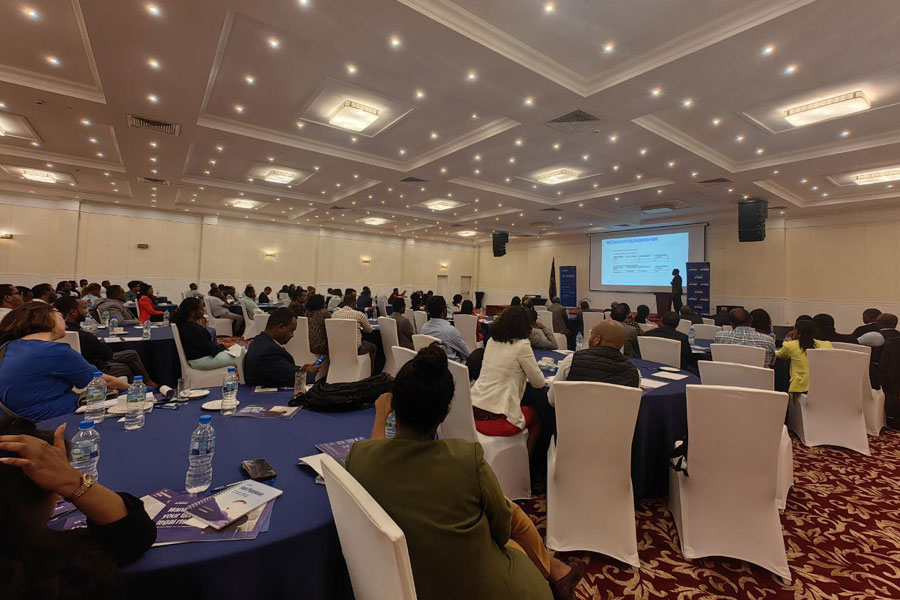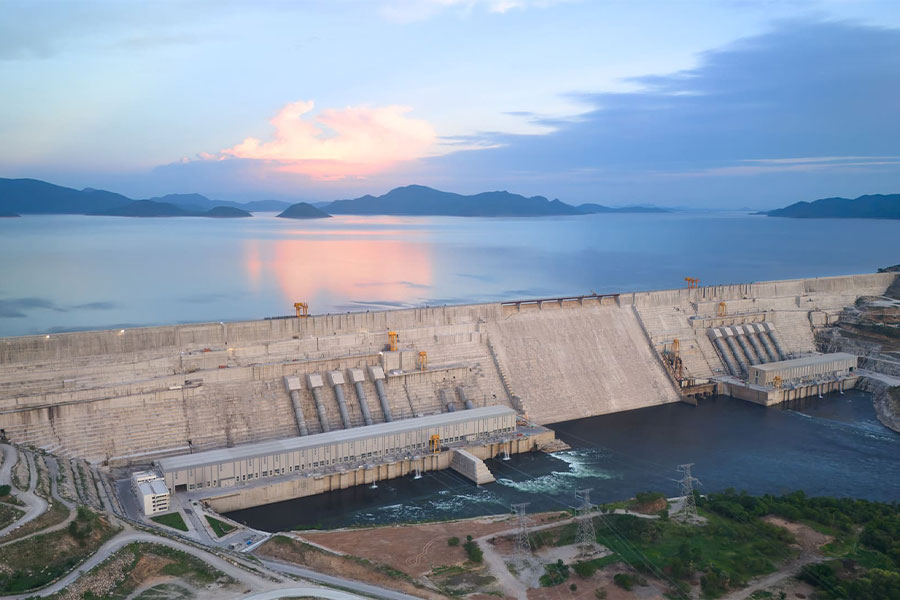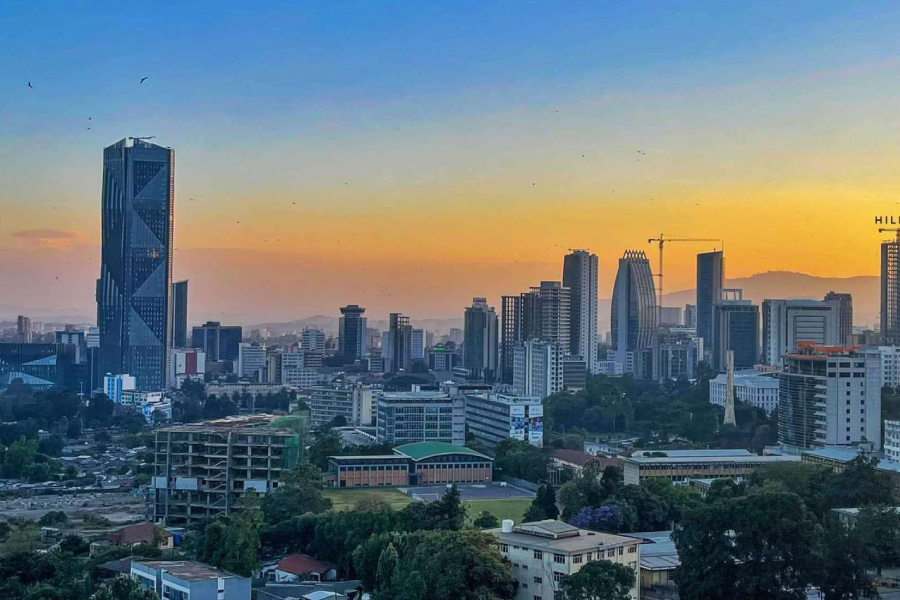
Radar | Jan 09,2024
Dec 16 , 2023
By Hintsa Andebrhan
Prime Minister Abiy Ahmed (PhD) has embarked on a vigorous diplomatic campaign marked by a series of high-profile engagements that have drawn global attention. The initiative, which could be termed a 'diplomatic honeymoon,' signifies a proactive approach to navigating complex geopolitical landscapes.
However, a critical assessment reveals that the effectiveness of this diplomatic manoeuvring hinges not only on historical ties and regional goodwill but more so on concrete policies and strategic alignments that resonate with contemporary global economic and political realities.
Ethiopia has often drawn on its rich past to forge international relationships. The narrative of the Prophet Muhammad advising his followers to seek refuge in Ethiopia, under King Nejasi's protection, echoes this historical depth. Such narratives, while significant, might not suffice in modern diplomatic engagements, especially with countries like Saudi Arabia, led by Crown Prince Mohammed bin Salman.
The Crown Prince, known for his pragmatic and strategic approach, focuses on realistic policies over historical anecdotes. This is evident in Saudi Arabia's ambitious "Vision 2030" program, which earmarks 25 billion dollars for investments in Africa. The program focuses not on historical connections but on practical economic and political engagements.
Prime Minister Abiy's recent participation at a summit Saudi Arabia hosted can be considered part of this broader diplomatic initiative. However, there seems to be a missing link in presenting Ethiopia's strategic economic and political policies in a manner that would align with Saudi Arabia's investment interests. The absence of a articulated Ethiopian perspective, particularly concerning the strategic Red Sea corridor, is notable.
With its significant influence in the Red Sea region, Saudi Arabia could have been a critical ally for Ethiopia, especially given its aspirations. However, the inability to assert Ethiopia's position on this front could be viewed as a missed opportunity and a lapse in foreign policy undertaking.
The summit in Berlin, another significant diplomatic platform, aimed to boost investment in Africa. Expectations were high that the Ethiopian government would leverage this opportunity to attract global investors. Yet, the recent withdrawal of France's telecom company, Orange, from Ethio telecom's partial privatisation process points to a potential mismatch between Ethiopia's investment priorities and the expectations of international investors.
The incident could reflect on a broader issue within the government's approach to economic diplomacy and its ability to effectively promote its investment policies on the global stage.
Moving beyond these specific events, it is crucial to consider the geopolitical dynamics within the Horn of Africa, particularly Ethiopia's relationships with other regional players like the United Arab Emirates (UAE) and their involvement in neighbouring countries like Sudan. The UAE's alleged military support to Sudan's Rapid Support Forces (RSF) and the ongoing civil unrest in Sudan present a complex backdrop. While Ethiopia's continued diplomatic engagement with the UAE is essential, there is a need for careful navigation to ensure that Ethiopia does not inadvertently exacerbate regional tensions or become entangled in neighbouring conflicts.
Perception and strategic positioning are crucial in international diplomacy. Ethiopia must demonstrate an understanding of these dynamics and the ability to craft and implement policies that reflect a sophisticated grasp of the geopolitical chessboard. This involves recognising and filling any policy vacuums that other regional or global players might exploit.
Ethiopia faces its own set of challenges and opportunities on the domestic front. With the youth constituting 70pc of its demographics, as Prime Minister Abiy reminded his audience at the UN COP-28 climate summit in Dubai, there lies significant economic and social opportunities. However, this potential can only be harnessed through the development of clear and robust policies that link Ethiopia's human capital and natural resources. Failure to do so could lead to economic stagnation and social unrest.
PUBLISHED ON
Dec 16,2023 [ VOL
24 , NO
1233]


Radar | Jan 09,2024

My Opinion | May 25,2024

Fortune News | Oct 21,2023

Viewpoints | Apr 13,2019

Radar | Oct 14,2023

Editorial | Mar 05,2022

Fortune News | Sep 15,2025

Radar | Aug 05,2023

Viewpoints | Feb 20,2021

Fortune News | Aug 04,2024

Photo Gallery | 180333 Views | May 06,2019

Photo Gallery | 170530 Views | Apr 26,2019

Photo Gallery | 161564 Views | Oct 06,2021

My Opinion | 137274 Views | Aug 14,2021

Dec 22 , 2024 . By TIZITA SHEWAFERAW
Charged with transforming colossal state-owned enterprises into modern and competitiv...

Aug 18 , 2024 . By AKSAH ITALO
Although predictable Yonas Zerihun's job in the ride-hailing service is not immune to...

Jul 28 , 2024 . By TIZITA SHEWAFERAW
Unhabitual, perhaps too many, Samuel Gebreyohannes, 38, used to occasionally enjoy a couple of beers at breakfast. However, he recently swit...

Jul 13 , 2024 . By AKSAH ITALO
Investors who rely on tractors, trucks, and field vehicles for commuting, transporting commodities, and f...

Nov 1 , 2025
The National Bank of Ethiopia (NBE) issued a statement two weeks ago that appeared to...

Oct 25 , 2025
The regulatory machinery is on overdrive. In only two years, no fewer than 35 new pro...

Oct 18 , 2025
The political establishment, notably the ruling party and its top brass, has become p...

Oct 11 , 2025
Ladislas Farago, a roving Associated Press (AP) correspondent, arrived in Ethiopia in...

Nov 2 , 2025
The National Bank of Ethiopia (NBE) has scrapped the credit-growth ceiling that had s...

Nov 2 , 2025 . By SURAFEL MULUGETA
The burgeoning data mining industry is struggling with mounting concerns following th...

Nov 2 , 2025 . By YITBAREK GETACHEW
Berhan Bank has chosen a different route in its pursuit of a new headquarters, opting for a transitional building instea...

Nov 2 , 2025 . By BEZAWIT HULUAGER
Nib International Bank S.C. has found itself at the epicentre of a severe governance...